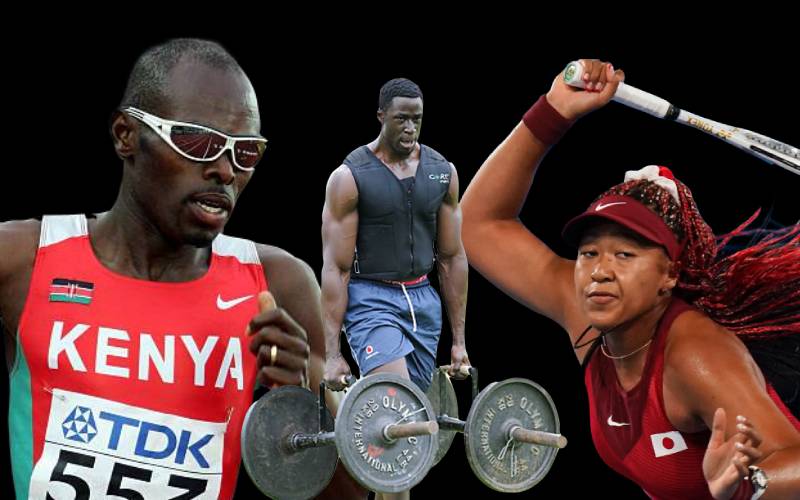×
The Standard e-Paper
Home To Bold Columnists

Former 800m Olympic gold medalist Wilfred Bungei (L), former American football star Daniel Adongo and Japanese tennis sensation Naomi Osaka. [Courtesy]
For sports stars, the pressure of being on the spotlight can have far-reaching mental repercussions which is mostly lost on adoring fans.